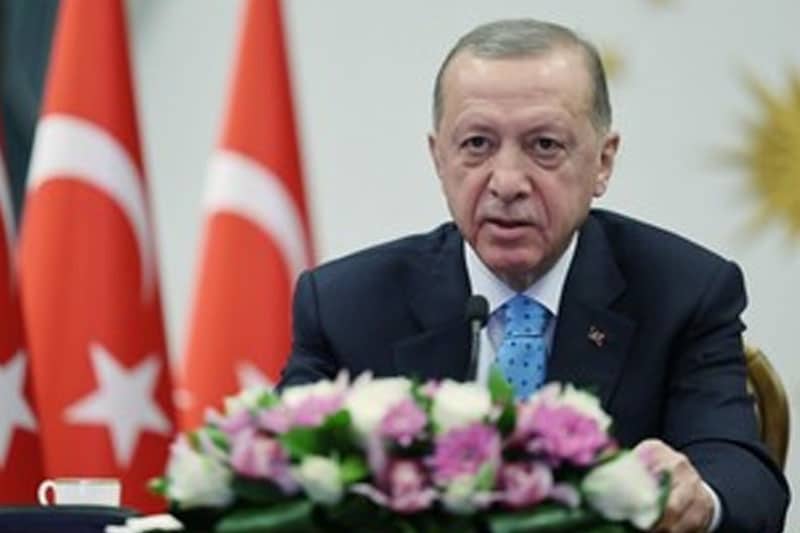Turkey to Reopen Embassy in Syria for the First Time Since 2012
Turkish Foreign Minister Hakan Fidan says that Turkey's Embassy in Syria's capital of Damascus will reopen on Saturday, for the first time since 2012.

Ankara, Turkey: Turkish Foreign Minister Hakan Fidan announced that Turkey’s Embassy in Syria’s capital, Damascus, will reopen on Saturday, marking the first time since 2012. In an interview with Turkey’s NTV television, Fidan confirmed that the newly appointed interim charge d’affaires and his delegation had left for Damascus on Friday, and the embassy will become operational the following day.
Table of Contents
The embassy had suspended operations in 2012 due to escalating security concerns during the Syrian civil war, prompting the recall of all embassy staff and their families to Turkey.
Significance of Reopening the Embassy Amid Syria’s Changing Political Landscape
The reopening of Turkey’s embassy comes amid significant political changes in Syria. On Friday, Syrians gathered in Damascus’ historic Umayyad Mosque for the first Muslim Friday prayers since President Bashar Assad’s ousting. The prayers were part of massive celebrations across Syria following the insurgent forces’ success in toppling Assad’s regime, which had ruled for over fifty years. The gatherings marked a symbolic shift in power in Syria, with insurgents now controlling the capital, Damascus.
U.S. and International Diplomacy as Transition Takes Shape
U.S. Secretary of State Antony Blinken is engaging with regional allies to shape Syria’s political transition, advocating for an “inclusive and non-sectarian” interim government. Blinken’s visit to Jordan, Turkey, and Iraq reflects U.S. efforts to manage the situation, though no direct meetings with Syria’s new leaders have taken place so far.
Also Read: 15 Toughest Jobs in the World: Dangerous Work That Makes Desk Jobs Look Easy
The main insurgent faction, Hayat Tahrir al-Sham (HTS), has been working to establish security and initiate a political transition after seizing Damascus. HTS’s leader, Ahmad al-Sharaa, delivered a message to the Syrian people, congratulating them on the revolution’s success while calling for peaceful celebrations and a focus on rebuilding the country.
HTS’s Leadership and International Concerns
HTS, formerly known for its extremist past, has promised a more inclusive government, aiming to dispel concerns over extremist rule, particularly among Syria’s minority communities. However, the group remains designated as a terrorist organization by the U.S. and European countries.
HTS’s interim prime minister, Mohammed al-Bashir, delivered the Friday sermon at the Umayyad Mosque, a significant venue symbolizing Syria’s cultural heritage. The mosque had previously been a site for anti-Assad protests during the early stages of the civil war.
Turkey’s Role and Regional Interests
Turkey’s involvement has been critical in the insurgents’ success, with Ankara supporting some of the opposition factions while opposing Syrian Kurdish groups, which are backed by the U.S. Turkey has long sought to prevent the Kurdish-led forces in Syria from gaining strength, viewing them as a security threat. Turkey’s primary concern is preventing terrorism and ensuring stability within Syria.
In discussions with Blinken, Fidan emphasized the importance of an inclusive government that protects minority and women’s rights and ensures regional security. Both Turkey and the U.S. are focused on preventing terrorism from gaining a foothold in Syria, particularly from groups like the Islamic State (IS) and the Kurdistan Workers Party (PKK).
Israel’s Continued Role in Syria’s Conflict
Israel has also played a significant role in Syria, carrying out airstrikes to prevent weapon transfers to extremist groups. Israel has maintained a presence in southern Syria, near the Israeli-occupied Golan Heights, which it has declared a buffer zone.
As Syria’s political transition unfolds, international powers will continue to navigate a complex web of interests in the region, seeking to ensure stability while addressing security concerns and humanitarian issues. The reopening of Turkey’s embassy in Damascus is an important step in the evolving political landscape of Syria.
